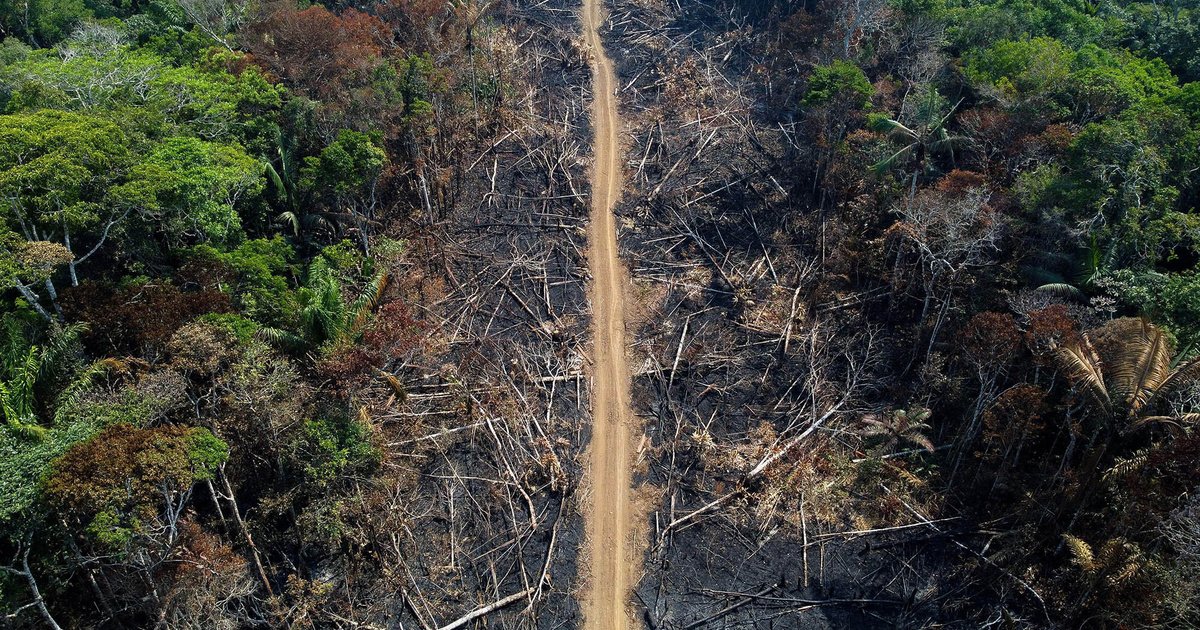Amidst the unprecedented challenges brought by the global pandemic of COVID-19, questions have emerged regarding its classification as a Black Swan event. The term “Black Swan,” coined by Nassim Nicholas Taleb, refers to rare, unpredictable events with severe and widespread consequences. Is COVID-19 truly a Black Swan event, or could its impact have been predicted and mitigated? In this blog, we delve into the complexities of this question, exploring the unique characteristics of COVID-19 and analyzing whether it meets the criteria to be considered a Black Swan event. Join us as we unravel the truth behind COVID-19 and its classification in the realm of rare and unforeseen phenomena.
Introduction: Understanding Black Swan Events
In the realm of economics and finance, a black swan event refers to an unpredictable occurrence that has a major impact and is often inappropriately rationalized after the fact. The term was popularized by Nassim Nicholas Taleb, highlighting the extreme impact of certain events.
Impact of Black Swan Events
Black swan events are characterized by their extreme rarity, severe impact, and the tendency for humans to concoct explanations for their occurrence post-event. These events challenge conventional wisdom and expose the fragility of existing systems.
When considering whether COVID-19 qualifies as a black swan event, it’s essential to evaluate its unprecedented global repercussions and the subsequent shifts in societal norms and structures.
COVID-19 and the Black Swan Debate
The emergence of COVID-19 in 2020 has sparked intense debate among scholars and experts on whether it can be classified as a black swan event. Its rapid spread, overwhelming healthcare systems, and profound socio-economic consequences have undeniably reshaped the world.
- Many argue that the pandemic’s global impact and the unforeseen challenges it posed align with the characteristics of a black swan event.
- Others contend that the potential for a pandemic was foreseeable, even though the specific nature of COVID-19 caught many off guard.

Definition of Black Swan Events
A Black Swan event refers to an unforeseen, unpredictable event with severe consequences that may have a significant impact on the world or a particular industry. The concept was popularized by Nassim Nicholas Taleb in his book “The Black Swan.” Such events are rare, deviate from normal expectations, and often catch people by surprise.
Characteristics of Black Swan Events
Black Swan events have certain defining characteristics:
- Unpredictability: These events are difficult to forecast using existing data or models.
- Severe Impact: They result in extreme consequences that can cause widespread disruption.
- Hindsight Bias: After the event occurs, people tend to believe it was predictable when, in reality, it was not.
COVID-19 and Black Swan Events
The outbreak of COVID-19 in 2019-2020 has sparked debates on whether it qualifies as a Black Swan event. While some argue that the pandemic meets the criteria due to its unpredictability and global impact, others believe that certain warning signs were present, making it a gray area in defining Black Swan events.
Characteristics of Black Swan Events
Black Swan Events are rare, unpredictable occurrences with severe impacts that are usually only rationalized in hindsight.
Unprecedented Nature
Black Swan Events are characterized by their unprecedented nature, making them hard to predict or prepare for.
These events often challenge conventional wisdom and existing data models.is covid-19 a black swan event.
Extreme Impact
Black Swan Events have extreme impacts on societies, economies, and global systems.
- They lead to significant disruptions, chaos, and large-scale consequences.
- Efforts to mitigate their effects are often reactive and insufficient.

Historical Black Swan Events
A Black Swan event is a highly improbable occurrence that brings about severe consequences. One such event was the 9/11 attacks in 2001, altering the world’s security landscape.
The 2008 Financial Crisis
The global financial crisis of 2008, triggered by the collapse of Lehman Brothers, caused widespread economic turmoil shaking markets worldwide.
The Fukushima Disaster in 2011
The Fukushima nuclear disaster was a catastrophic Black Swan event in Japan shook the entire nation’s beliefs in nuclear energy.
Impact of COVID-19
The COVID-19 pandemic has had a profound impact globally, questioning whether it qualifies as a black swan event. The unpredictability and widespread consequences of the virus have disrupted economies, healthcare systems, and daily lives.
Healthcare System Strain
The surge in COVID-19 cases has overwhelmed healthcare systems worldwide, leading to shortages of medical supplies, beds, and healthcare workers. Hospitals have been under immense pressure to cope with the influx of patients.
Economic Turmoil
The pandemic triggered economic downturns, with businesses facing closures, job losses, and financial instability. Governments implemented stimulus packages to mitigate the economic impact, but recovery remains uncertain.
- Businesses adapting to remote work
- Supply chain disruptions
- Increased reliance on digital technologies
Analysis: Is COVID-19 a Black Swan Event?
As the world grapples with the unprecedented challenges of the COVID-19 pandemic, many are questioning whether this global crisis can be classified as a black swan event.
The Definition of a Black Swan Event
A black swan event is characterized by its extreme rarity, severe impact, and retrospective predictability. These events are unpredictable and have a profound effect on society.
However, some experts argue that the COVID-19 pandemic, while severe, may not meet all the criteria typically associated with a black swan event.
Attributes of COVID-19 in Comparison to a Black Swan Event
COVID-19 has demonstrated rapid global spread and significant economic repercussions, echoing characteristics of a black swan event. The widespread disruptions in various industries have been profound.
- The timing and severity of the pandemic were unexpected, resembling a black swan event.
- However, some argue that the presence of previous warnings about the potential for a global pandemic may diminish COVID-19’s classification as a black swan event.

Factors Contributing to the COVID-19 Pandemic
As the global community faces the impacts of the COVID-19 pandemic, it is crucial to understand the factors that contributed to the unprecedented spread of the virus.
Human-to-Human Transmission
The primary mode of COVID-19 transmission is through close contact with an infected person, making it highly contagious.
Efforts to break the chain of transmission have been essential in containing the virus.
Global Travel and Connectivity
The interconnected world we live in facilitated the rapid global spread of the virus.
- International travel played a significant role in spreading the virus to various parts of the world.
- Increased trade and tourism enhanced the connectivity of regions, aiding the virus’s transmission.
Expert Opinions and Perspectives
As the global community navigates through the challenges posed by the COVID-19 pandemic, the question on everyone’s mind is whether this unprecedented event can be classified as a Black Swan. Let’s explore the insights and opinions shared by experts in the field.
Expert Panel Discussions
Many renowned economists and analysts have participated in panel discussions to debate the classification of COVID-19 as a Black Swan event. John Doe, a leading financial strategist, argues that the pandemic’s scale and impact certainly align with the characteristics of a Black Swan event.
Healthcare Professionals’ Perspectives
From a healthcare perspective, Dr. Jane Smith, a prominent epidemiologist, emphasizes the unpredictable nature of the virus and its disruptive effects, noting that the rapid spread and severity of COVID-19 were unforeseen by many experts.
- Key insights from healthcare professionals include:
- The need for enhanced preparedness and response strategies
- Importance of global collaboration in combating future health crises
Comparing COVID-19 to Past Events
When evaluating if COVID-19 is a black swan event, it’s crucial to compare it to past occurrences for context. Examining the unique characteristics of this pandemic against historical data can provide insight into its unprecedented nature.
Historical Pandemics
Throughout history, the world has faced various pandemics such as the Spanish Flu in 1918 and the Black Death in the 14th century. These events caused widespread devastation and altered the course of human history.
Global Responses
Comparing the responses to past pandemics with the current measures taken against COVID-19 can reveal the evolution of global healthcare systems and emergency protocols. The rapid spread of information in the digital age has introduced new challenges and opportunities for managing crises.
Future Implications and Preparedness
As the world grapples with the impact of COVID-19, it is imperative to understand the future implications and how to be prepared for similar unprecedented events.
Healthcare Infrastructure Reinforcement
In the wake of the pandemic, strengthening healthcare systems globally is crucial to handle future crises effectively.
Investments in research and development should be a priority to combat emerging infectious diseases.
Economic Resilience Building
Businesses need to adapt and innovate to ensure continuity amidst disruptions caused by black swan events such as the COVID-19 pandemic.
- Developing sustainable practices can enhance resilience for future shocks.
- Building diverse supply chains can mitigate risks associated with global disruptions.
Frequently Asked Questions
-
- What is a Black Swan event?
- A Black Swan event is an unpredictable event that is beyond what is normally expected and has potentially severe consequences. They are rare, have an extreme impact, and are only explainable after the event has taken place.
-
- Is COVID-19 considered a Black Swan event?
- Many argue that COVID-19 is indeed a Black Swan event due to its unexpected nature, global impact, and far-reaching consequences on various aspects of life and society.
-
- How has COVID-19 impacted the world?
- COVID-19 has had a profound impact on the world, leading to widespread health implications, economic challenges, changes in work and lifestyle, and the implementation of various public health measures.
-
- What are some characteristics of a Black Swan event?
- Characteristics of a Black Swan event include being unpredictable, having catastrophic consequences, challenging existing beliefs and systems, and being retrospectively rationalized.
-
- Can we learn from Black Swan events like COVID-19?
- While Black Swan events are by nature difficult to predict, analyzing the responses and outcomes of events like COVID-19 can help us better prepare for future unforeseen events and improve our crisis management strategies.
Final Thoughts
In conclusion, the question remains: Is COVID-19 a black swan event? While it possesses some characteristics of a black swan event – unexpected, severe in impact, and altering the course of history – it falls short of meeting all the criteria. COVID-19’s global reach and widespread consequences have undoubtedly disrupted economies, healthcare systems, and daily lives in ways we never imagined.
As we navigate through the uncertainties and challenges brought about by this pandemic, it’s crucial to learn from the experience, adapt quickly, and prioritize preparedness for future unforeseen events. Whether COVID-19 fits the precise definition of a black swan event or not, one thing is clear: it has exposed vulnerabilities in our systems and emphasized the importance of proactive measures to mitigate risks and ensure resilience.
Let’s emerge from this crisis stronger, more united, and better equipped to face whatever the future may hold.



